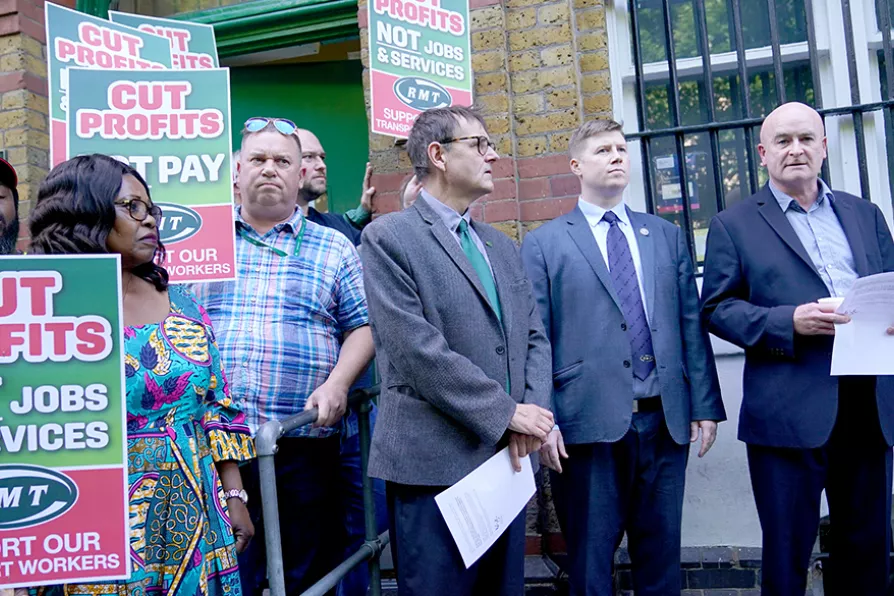Hundreds protested against the US-Israel attacks on Iran in Parliament Square on Saturday, fearing a wider conflagration and horrified by the targeting of young schoolchildren, writes LINDA PENTZ GUNTER

 LEADING THE WAY: Mick Lynch, RMT general secretary addressing the media
LEADING THE WAY: Mick Lynch, RMT general secretary addressing the media
FOR those of us in the labour movement, July is synonymous with two glorious celebrations of trade unionism. If you can’t be at both, you certainly have to be at one.
First comes the Durham Miners’ Gala, on the second Saturday of July, followed a week later by the Tolpuddle Martyrs’ Festival.
These are very different occasions, with distinct histories, but they are linked by a remembrance and respect for the power of collective struggle. There’s nothing like it.

Four decades on, the Wapping dispute stands as both a heroic act of resistance and a decisive moment in the long campaign to break trade union power. Lord JOHN HENDY KC looks back on the events of 1986

ANSELM ELDERGILL examines the legal case behind this weekend’s Tolpuddle Martyrs’ Festival and the lessons for today

As the labour movement meets to remember the Tolpuddle Martyrs, MICK WHELAN, general secretary of train drivers’ union Aslef, says it’s an appropriate moment to remind the Labour government to listen to the trade unions a little more

RMT leader Eddie Dempsey's stark warning shook up a fringe meeting at the Scottish TUC










